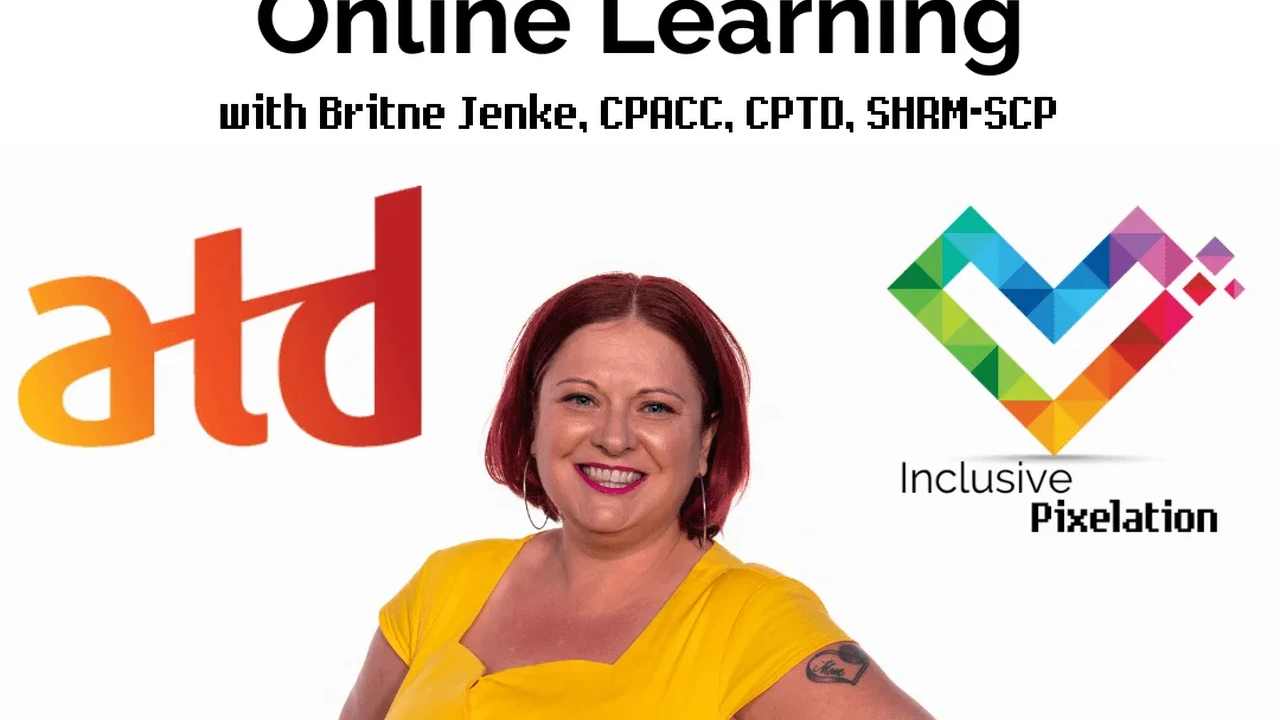Future Proofing Your Career with Online Education
Discover how continuous online education can help you future-proof your career in a rapidly changing job market.

Future Proofing Your Career with Online Education
Hey there! Ever feel like the world is moving at warp speed, especially when it comes to jobs and skills? You're not alone. The job market today is a whirlwind of new technologies, evolving demands, and constant change. What was a hot skill yesterday might be obsolete tomorrow. So, how do you stay ahead of the curve? How do you make sure your career doesn't just survive, but thrives, in this ever-shifting landscape? The answer, my friend, lies in continuous learning, and more specifically, in the incredible power of online education. It's not just about getting a degree anymore; it's about building a resilient, adaptable career that can weather any storm.
The Ever Changing Job Market Why Continuous Learning is Key
Let's be real, the days of getting one degree and being set for life are long gone. Industries are transforming at an unprecedented pace. Think about it: AI, automation, big data, cybersecurity, sustainable energy – these aren't just buzzwords; they're shaping entire sectors and creating entirely new job categories. This rapid evolution means that the skills you learned five, ten, or even two years ago might not be enough to keep you competitive. Employers are no longer just looking for what you know; they're looking for your ability to learn, adapt, and acquire new skills. This is where continuous learning steps in as your career's best friend. It's about staying relevant, expanding your capabilities, and positioning yourself for future opportunities, rather than being left behind.
Online Education Your Secret Weapon for Career Resilience
So, why online education specifically? Well, it's tailor-made for the modern professional. Traditional education often requires you to put your life on hold, relocate, and commit to rigid schedules. Online education, on the other hand, offers unparalleled flexibility. You can learn at your own pace, from anywhere in the world, fitting your studies around your existing work and family commitments. This accessibility is a game-changer, especially for those of us who are already deep into our careers but need to upskill or reskill. It democratizes learning, making high-quality education available to a much wider audience, whether you're in a bustling city in the US or a growing economy in Southeast Asia. It's about making education work for your life, not the other way around.
Identifying Future Proof Skills What to Learn Next
Okay, so you're convinced about online education. But what should you actually learn? This is where strategic thinking comes in. Don't just jump on the latest trend. Instead, focus on skills that are broadly applicable, in high demand, and likely to remain relevant for years to come. Think about skills that complement automation, rather than being replaced by it. Here are a few categories to consider:
- Digital Literacy and Data Skills: Understanding data, analytics, and digital tools is no longer just for tech roles. Every industry relies on data, and being able to interpret it, use digital platforms, and understand cybersecurity basics is crucial.
- Soft Skills and Emotional Intelligence: As AI handles more routine tasks, human-centric skills like critical thinking, problem-solving, creativity, communication, collaboration, and emotional intelligence become even more valuable. These are uniquely human attributes that machines can't replicate.
- Specialized Technical Skills: Depending on your industry, diving deeper into areas like AI/Machine Learning, cloud computing, advanced programming languages, or specific industry software can give you a significant edge.
- Green Skills and Sustainability: With a global focus on climate change and sustainable practices, skills related to renewable energy, environmental management, and sustainable business models are rapidly growing in importance.
- Entrepreneurial and Innovation Skills: Even if you don't plan to start your own business, an entrepreneurial mindset – the ability to identify opportunities, innovate, and adapt – is highly valued in any organization.
Online Degree Programs for Long Term Career Growth
For a more structured and in-depth approach to future-proofing, online degree programs are an excellent choice. They offer comprehensive curricula, recognized credentials, and often include practical projects and networking opportunities. Here are some top picks that are consistently in demand:
Online Master of Business Administration MBA Programs for Strategic Leadership
An online MBA is a classic for a reason. It equips you with a broad range of business acumen, from finance and marketing to operations and strategy. It's perfect for those aiming for leadership roles or looking to transition into management. Many programs now offer specializations in areas like data analytics, technology management, or sustainable business, making them even more future-proof.
Online Master of Science in Data Science Programs for Analytics Expertise
Data is the new oil, and data scientists are the engineers extracting its value. An online MS in Data Science will teach you everything from statistical modeling and machine learning to data visualization and programming languages like Python and R. This degree is incredibly versatile and opens doors in almost every industry.
Online Master of Science in Cybersecurity Programs for Digital Protection
With cyber threats constantly evolving, cybersecurity professionals are in extremely high demand. An online MS in Cybersecurity will train you to protect digital assets, identify vulnerabilities, and respond to attacks. This field is only going to grow, making it a very secure career path.
Online Bachelor of Science in Computer Science Programs for Foundational Tech Skills
If you're looking to pivot into tech or strengthen your foundational knowledge, an online BS in Computer Science is a solid choice. It covers core programming, algorithms, software development, and more, providing a strong base for various tech roles.
Online Certificates and Microcredentials for Targeted Skill Development
Sometimes, a full degree isn't what you need. Online certificates and microcredentials are fantastic for acquiring specific, in-demand skills quickly. They're shorter, more focused, and often cheaper than full degrees, making them ideal for targeted upskilling or exploring new areas.
Top Online Learning Platforms and Their Offerings
Now, let's talk about where you can find these amazing online education opportunities. The landscape of online learning platforms has exploded, offering everything from free courses to full-fledged accredited degrees. Here are some of the big players and what they bring to the table:
Coursera Global Access to University Courses
Coursera partners with over 200 leading universities and companies worldwide, offering a vast array of courses, Specializations, Professional Certificates, and even full Bachelor's and Master's degrees. You'll find programs from top institutions like Yale, Stanford, Google, and IBM. Their degree programs are often more affordable than on-campus equivalents and are designed with working professionals in mind. For example, you can find a Master of Applied Data Science from the University of Michigan or an MBA from the University of Illinois. They also offer guided projects for hands-on learning. Pricing varies widely, from free courses (audit track) to several thousand dollars for Specializations and tens of thousands for degrees. Many courses offer financial aid.
edX University Level Learning and Professional Programs
Similar to Coursera, edX was founded by Harvard and MIT and offers high-quality courses and programs from leading universities and institutions globally. They have MicroBachelors and MicroMasters programs, which are stackable credentials that can often count towards a full degree. You can find programs in fields like Artificial Intelligence, Cybersecurity, and Business Analytics from institutions like MIT, Harvard, and UC Berkeley. edX also offers professional certificates. Pricing is comparable to Coursera, with free audit options for many courses and varying costs for verified certificates and degree programs.
Udacity Tech Focused Nanodegrees and Career Paths
Udacity focuses heavily on in-demand tech skills, offering 'Nanodegrees' that are designed in collaboration with industry leaders like Google, Amazon, and Mercedes-Benz. These Nanodegrees are project-based and career-focused, providing practical skills in areas like AI, machine learning, data science, web development, and autonomous systems. They often include mentorship and career services. Udacity is generally subscription-based, with Nanodegrees typically costing a few hundred dollars per month, or a discounted upfront payment for the entire program, which can range from a few thousand dollars. They don't offer traditional degrees but are excellent for targeted skill acquisition.
LinkedIn Learning Skill Development for Professionals
LinkedIn Learning (formerly Lynda.com) is a fantastic resource for professional development across a wide range of topics, from software skills (like Excel, Photoshop, Python) to business skills (leadership, marketing, project management) and creative skills. While they don't offer degrees, their courses are taught by industry experts and are great for continuous upskilling and filling knowledge gaps. Many companies provide LinkedIn Learning subscriptions to their employees. Individual subscriptions are typically around $29.99 per month or $19.99 per month when billed annually, with a free trial available.
FutureLearn Social Learning and Diverse Course Offerings
FutureLearn, a UK-based platform, partners with universities and cultural institutions worldwide to offer a diverse range of courses, Microcredentials, and online degrees. They emphasize social learning, with discussions and peer interaction built into the course structure. You can find programs in health, tech, business, arts, and more. Their degree programs are often from UK universities but are accessible globally. Pricing varies, with free access to courses for a limited time, and paid upgrades for unlimited access, certificates, and degree programs.
Choosing the Right Platform and Program for Your Career
With so many options, how do you pick the right one? Here's a little roadmap:
- Define Your Goals: What specific skills do you need? Are you looking for a career change, a promotion, or just to stay updated? A full degree might be best for a career pivot, while a certificate could be perfect for upskilling.
- Research Industry Demand: Look at job postings in your desired field. What skills are consistently mentioned? Use tools like LinkedIn's 'Skills You Need' or government labor statistics to identify high-demand areas.
- Check Accreditation and Recognition: If you're pursuing a degree, ensure the institution and program are accredited. For certificates, check if they are recognized by industry bodies or potential employers.
- Consider Your Learning Style: Do you prefer self-paced learning, or do you thrive with live sessions and peer interaction? Some platforms offer more flexibility than others.
- Budget and Time Commitment: Be realistic about how much time and money you can invest. Online education can be more affordable, but degrees still represent a significant investment.
- Read Reviews and Testimonials: See what other students have to say about the program and platform. Look for success stories and feedback on the quality of instruction and support.
Maximizing Your Online Learning Experience for Career Impact
Simply enrolling isn't enough; you need to actively engage to get the most out of your online education. Here are some tips:
- Set Clear Goals and a Schedule: Treat your online studies like a job. Block out dedicated time, set mini-deadlines, and stick to them.
- Create a Dedicated Study Space: Minimize distractions by having a specific area for learning.
- Actively Participate: Engage in discussion forums, ask questions, and collaborate with peers. This enhances learning and builds your network.
- Apply What You Learn: Don't just consume information. Look for opportunities to apply your new skills in your current job, personal projects, or volunteer work. This solidifies your understanding and builds a portfolio.
- Network, Network, Network: Connect with instructors, classmates, and alumni. Online platforms often have dedicated communities. LinkedIn is also your best friend here.
- Seek Feedback: Don't be afraid to ask for constructive criticism on your assignments and projects.
- Stay Curious and Adaptable: The learning journey never truly ends. Embrace a mindset of continuous growth and be open to new ideas and technologies.
The Future is Now Your Career Awaits
The world of work is constantly evolving, and the best way to navigate it is by embracing continuous learning through online education. It's not just about acquiring new skills; it's about cultivating a mindset of adaptability, resilience, and lifelong growth. Whether you're looking to pivot careers, climb the corporate ladder, or simply stay relevant, online education offers the tools and flexibility you need to future-proof your career. So, what are you waiting for? The next chapter of your professional journey starts now, with a click of a button and a commitment to yourself.
:max_bytes(150000):strip_icc()/277019-baked-pork-chops-with-cream-of-mushroom-soup-DDMFS-beauty-4x3-BG-7505-5762b731cf30447d9cbbbbbf387beafa.jpg)






